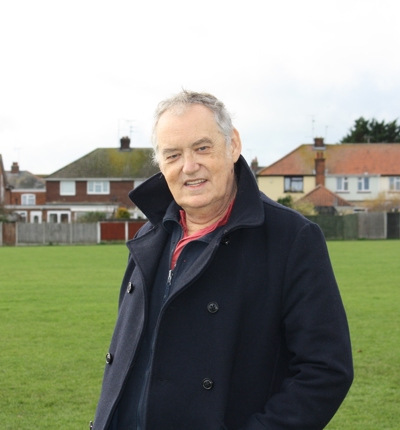
Legal challenge to government's voter ID pilots issued in the High Court
A legal challenge to the government's plans for voter id pilot scheme is being formally issued at the High Court today.
Posted on 11 January 2019
The judicial review is being brought by Neil Coughlan, 64, from Witham in Essex, who is challenging the government’s plans to implement the pilot scheme in 10 local authority areas, with a view to rolling the scheme out nationally in future local elections.
Neil believes the pilot schemes are unlawful and argues that the Government does not have legal authority under the Representation of the People Act 2000 to introduce pilots which will prevent people from voting in the 2019 local elections if they are unable to produce the required ID.
A letter before action was sent to the Minister for the Cabinet Office in early December setting out the legal arguments and inviting the government to reconsider their plans. No satisfactory response to this letter was received and Neil has therefore issued judicial review proceedings.
Lawyers for Mr Coughlan argue that the decision to implement the pilot schemes will be made by the government using statutory orders which there is no legal requirement to publish, bypassing the chance for parliament to scrutinise the plans.
In his legal case Mr Coughlan argues that the government is acting unlawfully because it does not have the power under the Act to introduce pilots like this that restrict voting rights.
Mr Coughlan does not have photographic ID and believes many of his neighbours do not possess the required documents either. He believes many will be discouraged from voting in the pilot areas and is concerned that if this scheme is rolled out nationally it will serve to further disenfranchise already marginalised communities.
Mr Coughlan also argues that the government’s claim that the scheme is being implemented to help tackle voter fraud does not withstand scrutiny as the evidence suggests that cases of e fraud are vanishingly rare.
According to the Electoral Commission there were only 28 alleged cases of voter fraud out of a total of 44 million votes cast across the country in 2017 and only one recorded conviction.
The potential impact if the pilot scheme was to be rolled out across the country could be huge as according to the Electoral Commission 3.5 million electors (7.5% of the electorate) do not have any photo ID. If restricted to passports and driving licenses, potentially 11 million electors (24% of the electorate) would not have the right ID to comply with the scheme.
Mr Coughlan has launched a fundraising campaign for the case via CrowdJustice. He said:
“I have brought this legal case because I know that it is the people in my community and the communities like mine that will be affected by such requirements and end up being unable to vote. It will serve to further disenfranchise the poor and vulnerable who already struggle to have their voices heard.
“Ministers and civil servants naively think that everybody has access to identification like passports, driving licences and utility bills. However, that is not right.
“The Government should not be wasting time and resources on tackling the non-existent problem of voter fraud by bringing in measures which make it harder for people to vote. It should be focussing on ways to increase democratic engagement, on getting people out to vote and persuading them that their vote does count.”
Tessa Gregory, solicitor at Leigh Day who is representing Mr Coughlan, said:
“Any measure which makes it more difficult for people to vote should, in my client’s view, be approached with the greatest caution. He is concerned that Voter ID requirements are being brought in by the back door unlawfully. It is his case that the legislative provisions which the Government is seeking to use, to first pilot Voter ID and then roll it out nationally, were enacted to test methods to facilitate voting (such as online voting), not restrict people’s entitlement to vote by requiring ID.
“We will argue on his behalf that the Government is going beyond the powers given to it by Parliament and that any attempts to introduce Voter ID in elections ought to be subject to the proper scrutiny of our elected representatives.”

